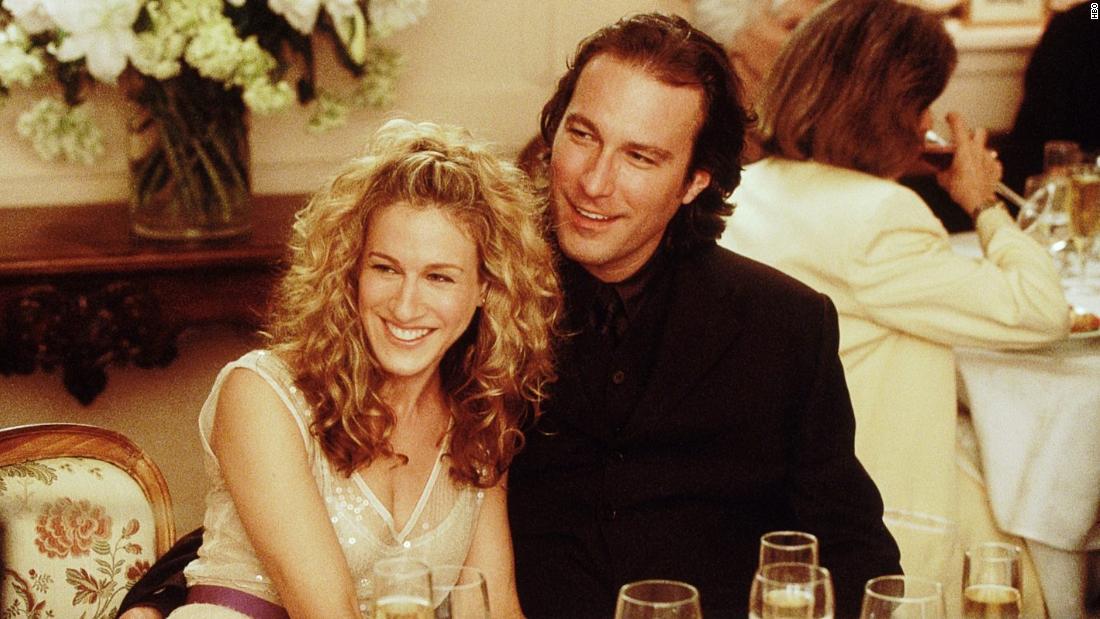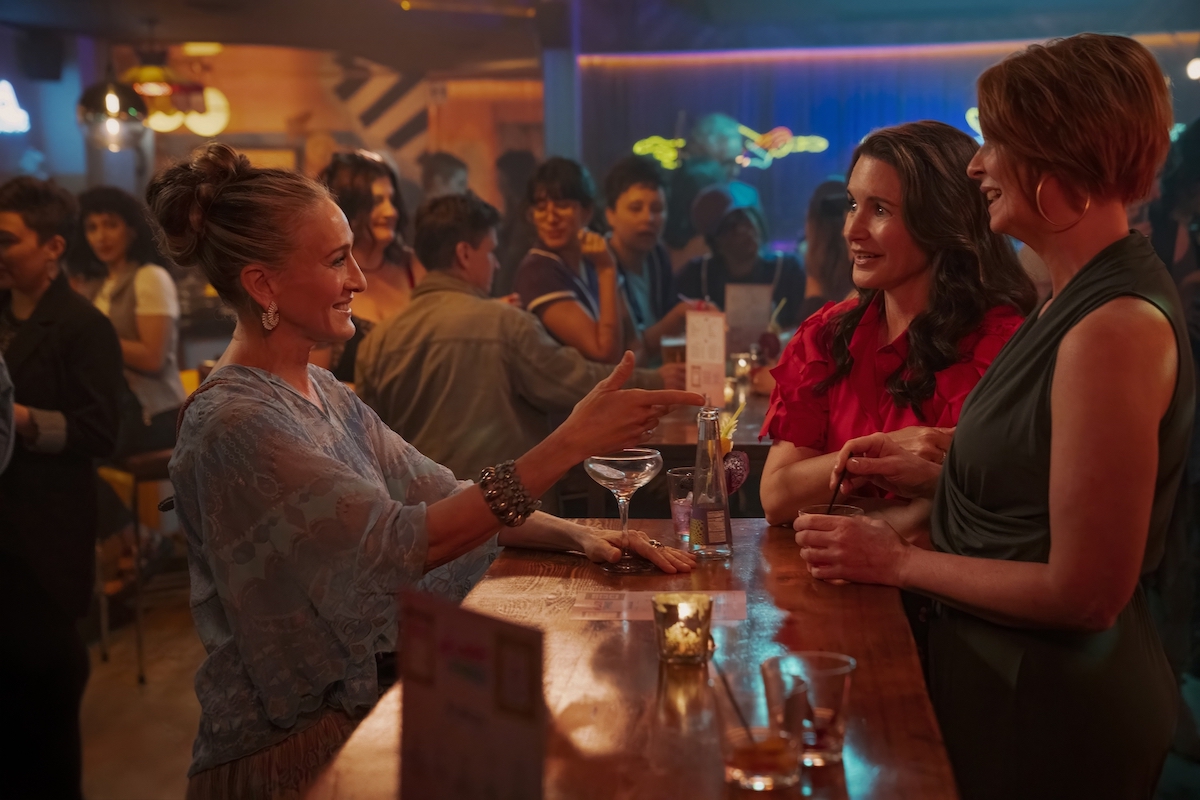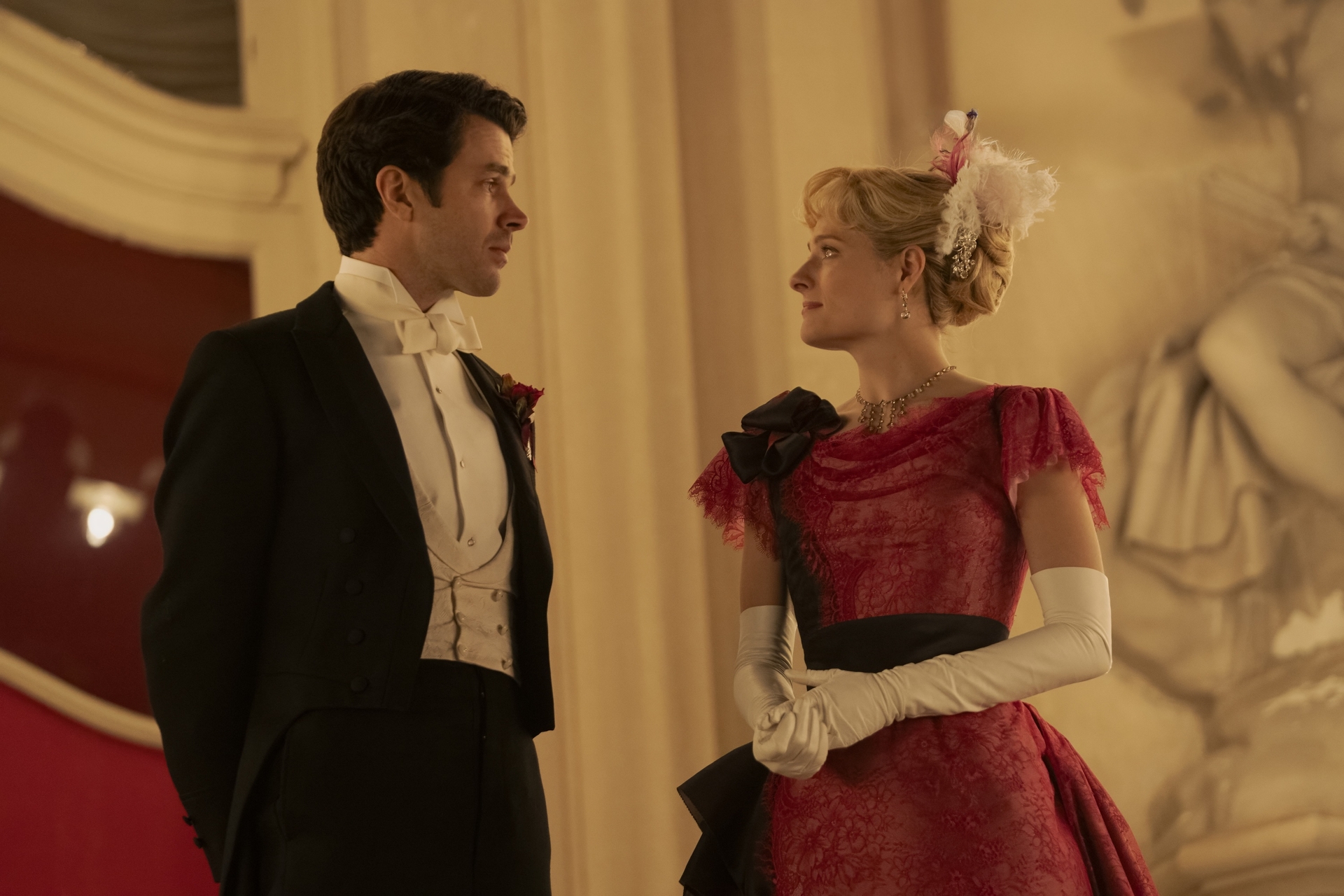In the IP era, legacies are a tricky thing. So many beloved TV shows and movies are getting revivals, reboots, and reimaginings — to varying degrees of success — it’s hard to say which ones will stick in the public consciousness.
Do “Frasier” fans consider Dr. Crane’s two so-so seasons on Paramount+ part of the acclaimed original series? What about the largely beloved but quickly discontinued “Party Down”? Bad or good, lasting or fleeting, what’s the impact of these contorted continuations on fans? Even if we don’t want to, can we forget what we’ve already seen? Once it’s out there, is it out there for good, or have all these story extensions also brought on different standards for pop-culture permanence?
It may come down to personal preference — the days of finding a consensus seem long behind us — but “And Just Like That” offers a curious case study. Michael Patrick King’s just-ended revival of “Sex and the City” never reached the acclaimed heights of the original series, but it ran for three closely-watched seasons, sparking consistent conversations and heated debates. Characters like Carrie (Sarah Jessica Parker) and Miranda (Cynthia Nixon) saw their fates change significantly from their previously ascribed endings, while new cast members and storylines further expanded the show’s established vision of New York City.
Now, after a series finale that did little to wrap up all these new story threads, what are we to make of “And Just Like That“? What sticks with us? What’s already drifting out of memory? Did the series do permanent damage to our relationships with its iconic characters, or is it easily set aside as a misguided experiment with no real victims? And as the age of I.P. rages on, are audiences learning to pick and choose what is and isn’t canon? Can they claim their own endings if they’ve already seen an alternate future? Or are we all at the mercy of the corporations and creators who keep pushing revivals on us, whether we want them or not?
Personally, I’ll find it hard to forget what’s become of Carrie & Co, but still think it’s easy to separate the two series (and movies, if you so choose). But enough from me: Below, IndieWire staffers share their thoughts on what “And Just Like That” accomplished, where it fell short, and how the franchise should move forward — or, you know, not. Now is the time to make space for the memories, whether it’s a way to preserve them, or how we say goodbye. —Ben Travers

A Defense of “And Just Like That” — to a Point
Allow me to say something controversial, but brave: I mostly enjoyed the first two seasons of “And Just Like That.” Was its 21-episode stretch necessarily good, tasteful television? No, not at all. But even with the character assassination of Miranda Hobbes, even with Big’s death by Peloton, even with Stanford fleeing New York to become a monk, even with the walking meme that was Che Diaz (poor, poor Sara Ramirez), I was having a good time.
I enjoyed Carrie’s gaudy outfits. I enjoyed Anthony’s romance with a young Italian twunk. I enjoyed Sarita Choudhury’s vivacious performance as Seema. I enjoyed Charlotte and Harry’s corner of the show, a familial comedy-of-manners that felt far more honest and real about where these people would have ended up than anything the writers attempted with Miranda.
Most of all, while acknowledging its flaws, “And Just Like That” remembered “Sex and the City” was fun. I was never anticipating a sequel to the groundbreaking original show to have the same wit and intelligence, so what I wanted was a breezy romp with some iconic characters, and I mostly got my wish. Sure, the show operated on a thin strain of logic that bordered on the surreal, but its complete disconnect from reality was half the appeal.
Furthermore, “And Just Like That” seemed to be heading in a promising direction upon the conclusion of its second season. With the brief resumption of her romance with Aidan over and her grief for Big largely resolved, Carrie could be free again to date and mingle as a fabulous socialite in her late fifties. Finally, “And Just Like That” could give us the complete “Sex and the City” magic we know and love.
And then Aidan came back. As someone who would willingly rewatch the first two seasons of “And Just Like That” anytime, I am not exaggerating when I say that the show’s final season is one of the most disastrous seasons of TV ever aired.
I was not happy with Aidan’s return mid-Season 2. The choice felt like pandering, a revival of a relationship that had long since been squeezed of all possible drama, and I loved Aidan in the original show! But as far as I’m concerned, Carrie and Aidan’s story ended in “Sex and the City” Season 6, when she encountered him on the streets of New York with a baby in tow.
Aidan’s nearly two-season-long arc in “And Just Like That” destroyed both his and Carrie’s characters and swallowed Season 3 whole. Their toxic, unhealthy, bizarre, rule-ridden, long-distance situationship was miserable and grueling. The two-episode stretch set in Virginia will haunt my dreams for years. “And Just Like That” was flawed but fun in its first two seasons; it was actively insulting in its final stretch.
Aidan wasn’t the only problem in Season 3, but he represents not just the show’s biggest failing but the biggest failing of TV revivals overall: an over-reliance on prior history that traps the characters in amber, like fossils, rather than the living, breathing human beings we remember. By bringing back a specter from the past, “And Just Like That” proved itself unable to move forward.
What will the show’s lasting legacy be? It’s hard to say. In 10 years’ time, it would not surprise me if “And Just Like That” fades from the cultural memory entirely, and new fans of “Sex and the City” are surprised to learn a Samantha-less revival briefly aired 20 years later. What I will personally remember is not the show’s incomplete narrative arc but the absurd little things — Che Diaz’s comedy concert, anyone? But whenever I revisit the original show, I will grimace at the name Aidan Shaw. —Wilson Chapman

Sex and the Decline of Democracy
For several months (years? when is it?), I’ve defended Che Diaz as a casualty of a waning feminist ethos for “Sex and the City.” In the end, the nonbinary podcaster (Sara Ramirez) — who didn’t make it anywhere near the “And Just Like That” finale in Season 3 — is still my favorite example of bizarre fun mirror effect that I think both sustained and sank the spinoff series in the mid-21st century.
One of many smoking guns in an artillery of reasons that doomed the Max original to cancelation long ago, Che was criticized endlessly after Season 2. The character was called unbelievable, cringe-worthy, and even offensive. They were a clumsy attempt at representation, weighed down by a godawful sitcom plot that’s best described as butch “BoJack Horseman” with even less awareness.
What’s worse, the “And Just Like That” writers’ room then relentlessly mischaracterized that modern media landscape they put Che in — embedding an almost geriatric sense of techno-confusion in Miranda that never felt like it fit. The fifty-something’s romance with Che was awkward and noncommittal, and they seemed like a cardboard cutout of an androgynous asshole as a result. (Miranda would know how to listen to a podcast, and she didn’t need Ho Rogan over here to mansplain it to her — but I digress.)
As too often happens, the nonbinary character’s depth was sacrificed to forward the evolution of a cis white woman. But that’s exactly the type of controversy I’ll miss “And Just Like That” for. As of the underwhelming Thanksgiving that ended it all, Miranda has a new girlfriend — and that’s at least a victory for lesbians. But it never helped that Che was up against fans of her beloved ex, Steve (David Eigenberg), who as the father of Miranda’s moronic child was and is always going to be there.
Viewers tuned into the misadventures of the “Sex and the City” girls well after their feminist archetypes and stories stopped working. In part, because there was something fascinating about the clownish way their once cutting-edge images no longer fit. The pop culture dialogue that grew out of that mismatch echoed the nostalgic watercooler conversation that has made the HBO brand look like Teflon for decades. Maybe I’m imagining a “Sex and the Silver Lining” where this wouldn’t be one, but at a time when the news gets evermore bleak, I wish “And Just Like That” had continued rattling as a fabulously imperfect skeleton of a one-great show that made people more interested in women.
No, we didn’t need Che leading our panicked nation through fireside chats. (We have “The Morning Show” for that, and I think we can all agree, Jennifer Anniston is this generation’s FDR.) But with the light of democracy dimming each day, you’ll have a hard time convincing me this disastrous universe was done bringing us comfort. At the very least, Darren Star should confirm that Carrie would absolutely use World War III as an excuse to call The Russian. That’s a finale I really want to see. —Alison Foreman

One Movie Is Good, but Two Sequels Are Too Many
While I might not be as dyed-in-the-wool fanatical about “Sex and the City” as some of my brethren and sistren — both at the good ship IndieWire and in my personal life — my long-held compulsion to read spoilers involving just about anything has kept me (frighteningly, horrifyingly, confusingly) up to date on the various high jinks of “And Just Like That.” I’ve spent the last four years (how?) and three seasons (why?) in various states of wonderment and terror when faced with the latest developments on the show — the insane plot lines, the bizarre twisting of iconic characters, the Che of it all. Even my darkest curiosity kept me from ever tuning in and, given how the finale flushed itself (quite literally) down the drain, I feel pretty good about my viewing habits. It’s also made me feel a little superior about a belief I adopted way back in 2010, after the debasement that was “Sex and the City 2”: For me, the series ends with the first “SATC” movie. That’s it. That’s all. Isn’t that fabulous? —Kate Erbland



